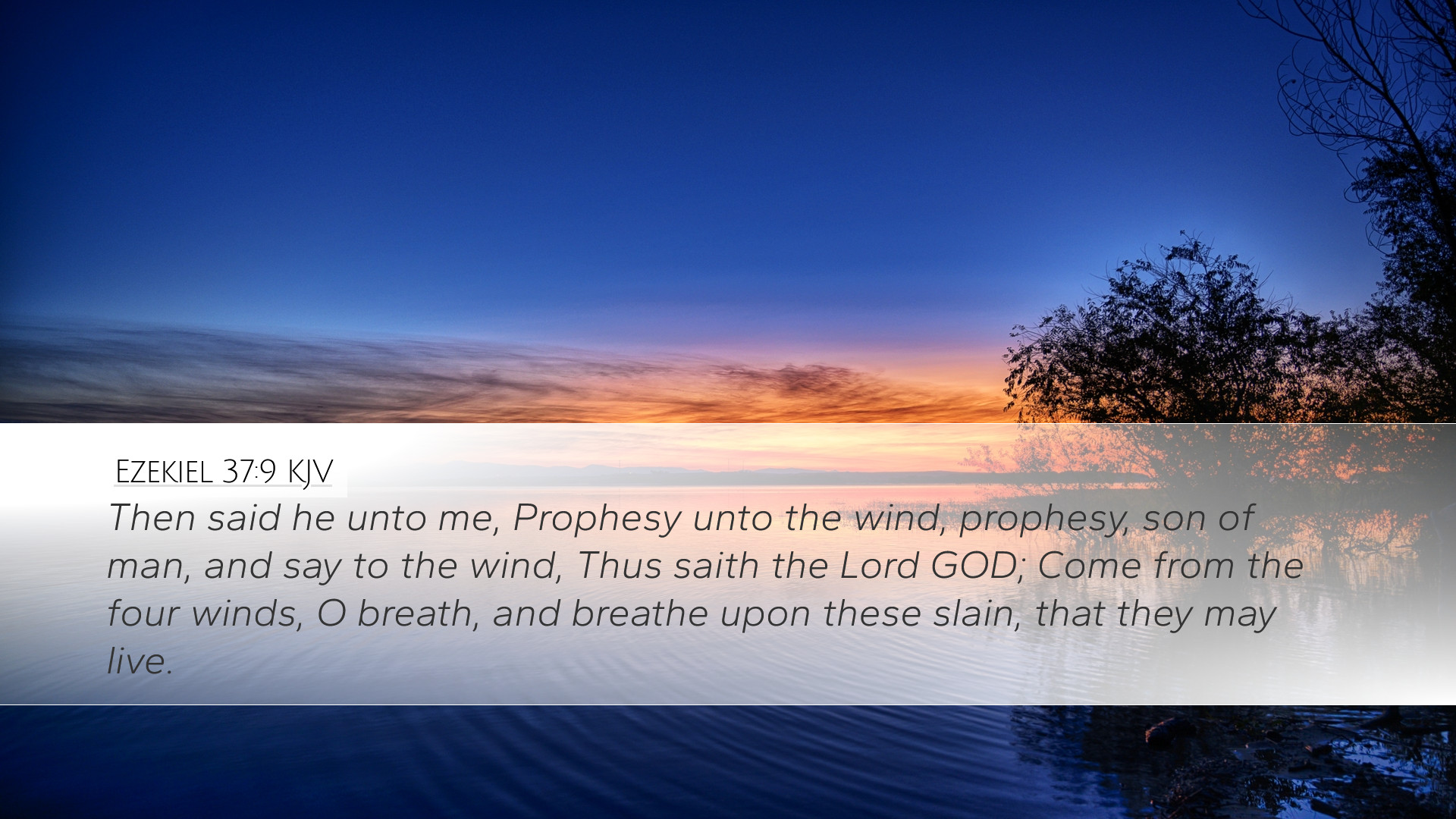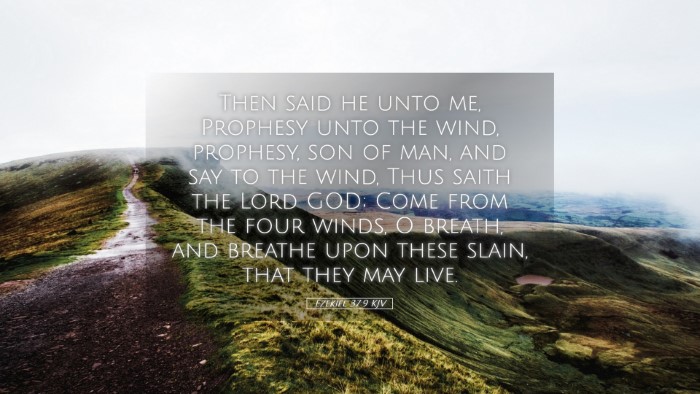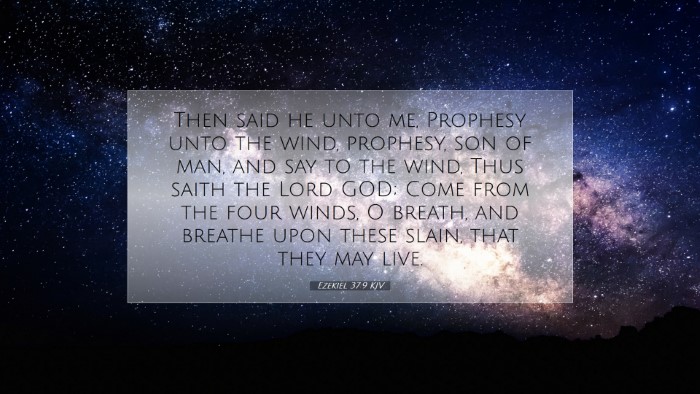Ezekiel 37:9 - Commentary
Verse: "Then said he unto me, Prophesy unto the wind, prophesy, son of man, and say to the wind, Thus saith the Lord God; Come from the four winds, O breath, and breathe upon these slain, that they may live."
Introduction
The prophecy in Ezekiel 37 is rich with symbolism and theological significance. This particular verse captures the command given to Ezekiel to prophesy to the winds, representing both the Spirit of God and the restoration of life. Public domain commentaries provide a multitude of insights into this profound moment within the context of Israel’s restoration.
The Role of Ezekiel
Matthew Henry emphasizes Ezekiel's role as a prophet in a situation that mirrors Israel’s despair. His obedience in prophesying reflects profound faith and highlights the power of spoken words in prophetic ministry. Henry notes that God's intention to use Ezekiel as an instrument signifies God's sovereignty and purpose in restoring His people.
Albert Barnes enriches this understanding by emphasizing the necessity of divine command in prophetic utterance. He indicates that the winds here symbolize not only physical forces but spiritual aspects, pointing towards the active work of the Holy Spirit to bring about resurrection and renewal.
The Significance of the Winds
-
Symbol of the Spirit: Adam Clarke discusses the 'breath' as a representation of the Holy Spirit. The term "spirit" in Hebrew (ר֫וּחַ, ruach) indicates breath or wind, signifying not just life but the transformative power of God’s Spirit coming among the lifeless.
-
Universality: The reference to the "four winds" suggests the comprehensive nature of God's restoration. Barnes highlights that this indicates God's intention to reach all corners of the earth with His life-giving breath.
-
The Command to Breathe: The command to the wind by Ezekiel directs attention to God's absolute authority over creation. Both Henry and Clarke point out how this encapsulates the theological theme that all creation is under God's dominion and obedient to His command.
The Context of Restoration
The broader context of Ezekiel 37 is essential to understanding its implications. Israel had experienced desolation and spiritual barrenness, symbolized by the valley of dry bones in the earlier verses. The imagery of resurgence through the breath serves as a powerful metaphor for renewal and resurrection.
Henry notes that this passage showcases God's mercy; though punishment has been warranted, restoration is offered. Clarke states that God's breath not only gives life but can also transform the deadness of sin into vibrant obedience and faithfulness, illustrating the incredible hope afforded to the people of Israel.
Theological Implications
-
Divine Initiative: One of the foremost theological implications is the understanding that revitalization and restoration come from God alone. This divine initiative is a recurring theme throughout Scripture, accentuating God's unyielding commitment to His people, as emphasized by both Henry and Clarke.
-
Human Agency: While the winds represent divine power, Ezekiel’s prophetic role signals the importance of human agency in the unfolding of God’s plans. Barnes remarks that this calls believers to respond to God’s directives and be active participants in His restorative work.
-
The Assurance of Life: The call for the Spirit to breathe upon the slain signifies assurance of life that is not based on human effort but purely on God's grace. This truth resonates deeply within pastoral and theological circles, emphasizing a grace-centered understanding of spiritual renewal.
Application for Pastors and Theologians
This passage serves as a potent reminder for church leaders and theologians about the essential work of the Holy Spirit in ministry. Just as Ezekiel was commanded to speak life into the dry bones, pastors are urged to proclaim the life-giving message of Christ amid a world often marked by despair and lifelessness.
Engaging with this text encourages a reliance on the Spirit’s power in preaching, teaching, and pastoral care. The call to prophesy to the winds can be interpreted as a challenge for believers to speak hope, revival, and the breath of God into situations of death, whether communal, spiritual, or individual.
Conclusion
Ezekiel 37:9 emphasizes the interplay between divine agency and human proclamation. As we reflect upon the commanded prophecy to the winds, we are reminded of the transformative power of God’s Spirit and the hope of resurrection available to all who turn to Him. Public domain commentaries provide a rich tapestry of insights that can significantly benefit pastors, theologians, and students of Scripture as they seek to understand and communicate the heart of this powerful and hopeful passage.


